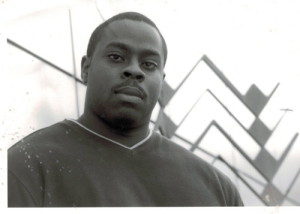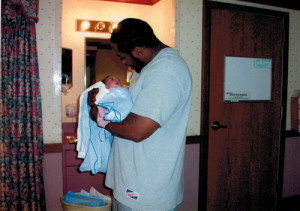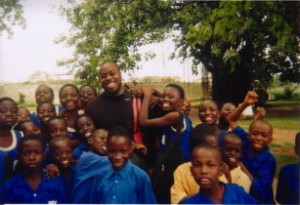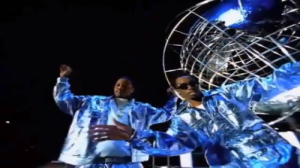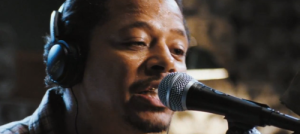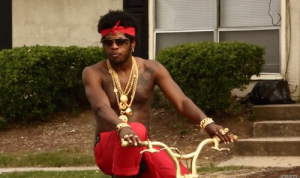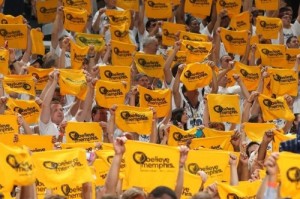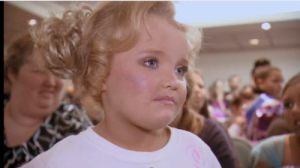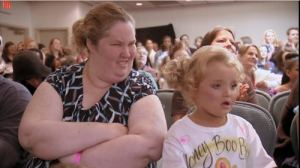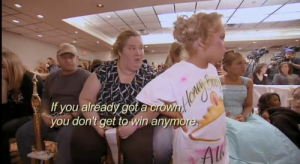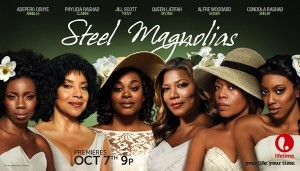Standing atop a summit in Potrero Hill with you in 2004 and seeing the city, and seeing the gentrification unfold before me as if the scene were time-lapsed, I understood the violence that simmered in you. Growing up in a complicated home amid the ravages of gangland feuds and turf wars in 1980s and 1990s San Francisco, you often cited juvenile detention, and your encounter there with the Omega Boys Club, as a critical turning point in your life. In juvenile for armed robbery, you strengthened your reading and math skills, determined to make it out, out of the Bay, out of California, out, out somewhere. You were intrigued by the South, as most non-southern blacks are, looking for a homeland in the States. On a college tour, you were sold on LeMoyne-Owen College in Soulsville, USA, and you moved to Memphis, where you often quipped that we’d just stopped riding horses and buggies. I had no idea what you were talking about, because you Bay-Area niggas had to be the most country, backwards people I had ever encountered in my entire life, Mississippi Delta included.
Transferring to the University of Memphis, you worked overnight as a computer lab attendant, answering the most asinine of questions with a patience that belied that simmering anger, the tick-tock in you. You hung with a group of big ol’ tall cats, lifting weights, shit and revolution talking. You flirted with the Nation of Islam but found it spiritually unfulfilling. But you faithfully listened to Malcolm X speeches on tapes you bought at Muhammad Mosque #55 on Vance Avenue. I have your “Ballot or Bullet,” which you played so until the tape revolted. I took a ballpoint pen and wound it back in much the same way that I’d tried to wind you back, to put you back together like The Wiz’s Dorothy; like all the king’s horses; and all the king’s men.
You didn’t want to hear none of that new time gospel music, but some Mahalia Jackson, some Negro spirituals. Not the new R&B, but some Otis Redding, Donnie Hathaway, Stevie Wonder, some Roberta Flack. I cringed when you sang along. You knew I hated and loved it, so you raised a fist to your chest and sang louder, all the time looking at me out the side of your eye. But you also loved your Bay Area rap, the asynchronous sounds of E-40, and you blasted it from your bucket, a 1982 Volkwagen Golf that, wherever it is, will surely survive the return of Jesus, the Apocalypse, Armageddon, and the zombie invasion.
You were into guns. Not in a hunting way, either, like I was used to. But as objects to be collected like so many dolls. To look at and to customize. To use on others in retaliation or desperation. To use on yourself in the same vein: in desperation, to retaliate and clap back against yourself for a life for which you were only partly responsible, for an overdetermined existence.
You were a notorious practical joker, and your raucous flatulence would surely have killed me had you not killed yourself. It was always you or me like that.
You read to Assata from your biology textbooks. You held her hand when she was learning to walk. When y’all napped together, both of you slung your right arms over your heads as if you’d tried to defend yourself against the sleep when it came for you. You cooed to her and told her things about your life you’d only said to yourself and in dreams. She has the picture of y’all in the delivery room framed on her bookshelf.
You teased me because she was mighty white when she came out. I said black children come in many colors. You said she’d better darken up soon or you were going to tell everyone I was with a white man.
You were smart and funny and clever and tough. Though you had scant soul when I met you, the soul you picked up in Memphis suited you well. You wouldn’t have ever been able to dance worth nothing if you had lived to be a hundred and two, though, but that’s all right.
I remember the project you were working on for your African American Studies research methods seminar, and I recently re-read your data. You were quite the ethnographer, and your field notes are in-depth and hilariously judgmental. You’d get a lot of comments on those field notes, mind you, but I’d give you an A.
You loved aquariums, and you had an African cichlid you’d named after me because you said she was always there and wasn’t no punk.
You gave me so many instructions in those days leading up to your death because you had planned this thing down to the minute, with Plans B and C and D in case A went awry. You were scared, but you were determined to kill yourself. I would be angry afterwards when people said that suicide was an act of cowardice, because you were so brave. You’d faced down more than the barrel of your own gun—a loving but sometimes angry mother, an absent and frequently incarcerated father, dope-dealing relatives, police brutality, your own incarceration, gentrification and displacement, undereducation, social neglect—and you were tired.
I didn’t take the instructions you gave me as the wishes of a dying man, because you were always dying a bit inside, even as I planted flowers in you. In a hurry, I blew right past those signs, and I am quite sorry I did. I pump the brakes now, all the time. And I know I didn’t heed all of your wishes. And I’m sorry about that, too.
You thought you were doing us a favor.
***
Over these years, sounds have faded, but I still hear the bigness of that gunshot, not so much loud as it was an arc, perfectly round and large, and painful like staring directly at the sun on a dare. I strain to hear those other sounds sometimes, but the sharp brightness of the sun drowns them out.
I found your note where you knew I’d find it: tucked behind the yellow pages, themselves tucked where they always were in the off-white phone book holder built into the wall of the home we’d shared. Your handwriting was one-eyed rooster scratch, so I know you wrote several drafts, and even this one had things furiously lined through, because you didn’t believe in erasers. In one place, I noticed you started to rationalize a wrong you’d done, but you marked it out with conviction, and just wrote instead, “but please forgive me.”
For seven years, I kept your books and notes in your backpack, heavy with the weight of the texts and your death, and hauled them with me wherever I moved—student family housing on the South campus of the University of Memphis; an apartment on Chicago’s north side, a block west of the lake, a block south of Evanston; two midtown Memphis duplexes; and here, a couple of minutes from Soulsville, USA. I never opened the backpack, just carried it. On this last stop, I peeked in and realized the books had dry rotted. Ashes to ashes I figured, and I salvaged the rest, the writings, still in tact. I read some of your writings to Assata.
Sometimes I hear snatches of the cadence and lilt of your voice, your Bay Area-accent, in conversations with strangers, and in conversations with men I know, and I am reminded of the many things, implicit and explicit, that I promised you in our life together. You made me promise to tell your story, and I swear I will. But I have been busy singing daily a dirge for those of us not as brave as you were, those of us who have instead opted to slowly kill ourselves and others, rather than to scream and steel and bang. And I have sung for those of us murdered in the course of everyday life for reasons predictable and avoidable and inevitable. When men and women of color are killed by state violence, neighborhood violence, domestic violence, racial violence, I think of how you were dying from a conglomeration of violences, and how you helped consolidate them into a single bullet fired from your own shotgun.
But I have been working to remember and to be reminded of your life, your living, too. To fight against that roaring sun to hear clearly the sounds of your life so I can be sure I sing the right song for you.
Rest In Power DeMadre Kareem Lockett, January 22, 1979 – August 18, 2004.
